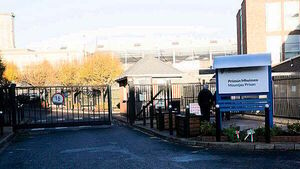One in four inmates receiving methadone for opioid addiction at Mountjoy Prison

Darragh Mc Donagh
Almost one in four inmates at Mountjoy Prison is receiving methadone for opioid addiction, new figures have revealed.
The proportion is highest among inmates in the women’s prison at the Mountjoy campus, where 40 per cent of prisoners are receiving methadone or a similar drug for addiction to opioids such as heroin.
Over one in five inmates at the men’s prison is currently receiving methadone as part of Opioid Agonist Therapy (OAT), according to data contained in tender documents published by the Irish Prison Service (IPS).
The IPS is currently seeking tenders from interested parties to provide addiction pharmacist services to prisoners at Mountjoy Prison and the Dóchas Centre for female offenders.
It expects to spend around €2 million plus VAT on these services over the next four years. This does not include the cost of methadone and similar drugs, which are purchased by the IPS under a separate agreement.
The successful contractor will be responsible for dispensing methadone and providing professional advice on drug treatment to other members of the prison healthcare team.
Tender documents warn applicants that the client group can present as “aggressive, drug-affected, threatening or abusive in a challenging environment”.
They also advise that there is no way to transfer patients who exhibit violence or abuse towards staff. “This is to be expected in the prison environment,” the documents add.
Mountjoy Prison has a dedicated medical unit with around 50 beds that is used exclusively for the administration of drug treatment programmes, according to the documents.
Statistics published by the IPS show that 1,200 inmates were in custody at Mountjoy Prison and the Dóchas Centre on October 14th. On the same day, 289 of these were receiving OAT.
Some 207 of the 993 people detained in the men’s prison were receiving methadone or a similar drug under this programme, along with 82 of the 207 inmates in the custody of the women’s prison.
Any person committed to prison who has a history of opiate use and tests positive for opiates is offered medically assisted detoxification treatment, according to the IPS. There is no waiting list for this service.
“Ensuring continuity of treatment between prison and the community is essential in supporting the efficacy of interventions that have been commenced in either setting,” the tender documents state.
“The IPS has an agreed protocol with the HSE for the seamless transition of prisoners established on drug treatment into community drug treatment settings.”





